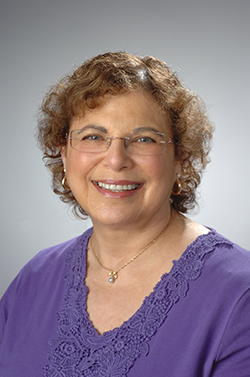Historian Offers Insight on Papal Transition and Legacy
As the Roman Catholic Church begins a new chapter under Pope Leo XIV, historians and scholars are helping the public interpret the significance of this moment. Among them is Margaret Susan Thompson, professor of history in the Maxwell School of Citizenship and Public Affairs and an expert on the Catholic Church. Thompson has been widely quoted in national media for her expertise on Catholicism and the papacy.
Thompson has provided context on both the legacy of Pope Francis and the early signals from his successor, Pope Leo XIV. In The New York Times, she reflected on Francis’ distinctive communication style, noting his ability to make doctrine feel personal and relatable:
“He made his commentary accessible,” she said. “It’s visual as well as tactile.”
She also pointed to the potential long-term significance of one of Francis’ final writings (a foreword to a youth catechism book) suggesting it may be reviewed by the Vatican’s canonization committee:
“It’s also a document that could be considered, among all of his writings, by the committee who will decide if Francis will be canonized.”
In USA Today, Thompson commented on Pope Leo XIV’s decision to delete his personal social media accounts and shift to official Vatican platforms:
“Social media can be a minefield for divisive commentary,” she said. “I imagine he’ll use it sparingly, perhaps for simple, pastoral messages.”
She also offered insight into the symbolic significance of the new pope’s chosen name:
“Leo is a powerful choice,” she said. “Leo XIII is considered the father of Catholic social teaching. This signals a potential emphasis on justice, labor, and the church’s role in the modern world.”
Thompson’s commentary has helped illuminate how both popes have navigated the balance between tradition and modernity, and how their choices may shape the church’s direction in the years ahead.


